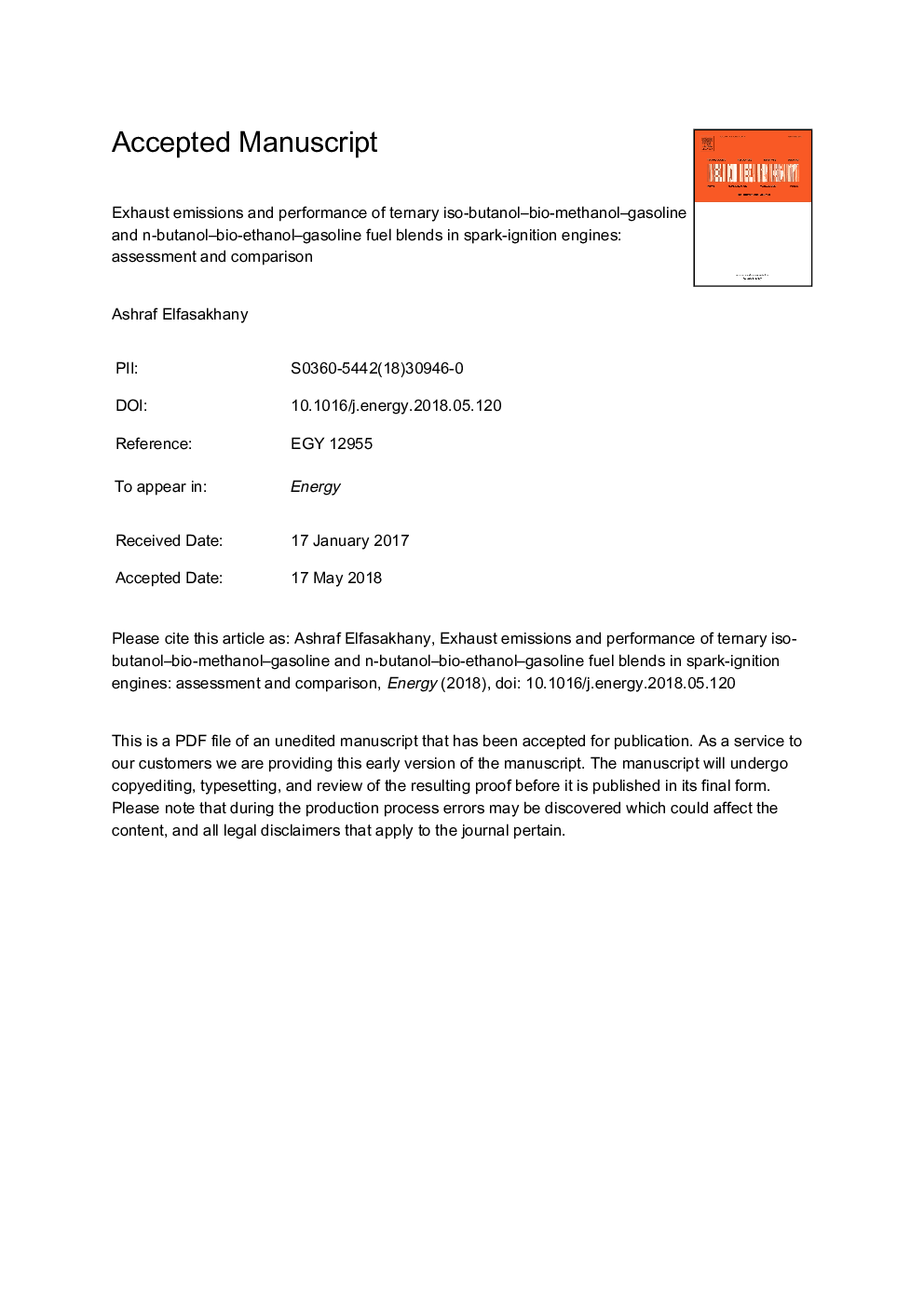| Article ID | Journal | Published Year | Pages | File Type |
|---|---|---|---|---|
| 8071189 | Energy | 2018 | 32 Pages |
Abstract
For the past few years, the energy-intensive renewable fuels are introduced to solve our depleted fossil fuels, power and/or clean air requirements. In view of that, in the current study a couple of new ternary blended fuels in renewable bases is examined, for the first time in the internal combustion engines, as possible alternatives of fossil fuels. Bio-methanol was mixed with iso-butanol and gasoline in one blended fuel (iBM), and bio-ethanol was mixed with n-butanol and gasoline in the other one (nBE) at rates 3-10â¯vol% biofuels. The two ternary blended fuels were compared with each others as well as with the neat gasoline for the fuel energy efficiencies and pollutant emissions in a gasoline-fueled engine. The fuel energy efficiencies include output torque (Torq), brake power (BP), volumetric efficiency (VE), in-cylinder pressure (ICP) and exhaust gas temperature (EGT), while the pollutant emissions include CO, CO2 and UHC (unburned hydrocarbons). Experimental results indicated that the two tested fuel blends can achieve the goal of more green sustainability, as compared to conventional neat gasoline fuel. The superior engine emissions were presented by iBM fuel blends, which imply 31%, 19% and 32% lower than the CO, CO2 and UHC emissions of neat gasoline. However, there are slight advantages on engine performance at using neat gasoline than the iBM and nBM ternary fuel blends. The study also indicated that the addition of iso-butanol-bio-methanol to gasoline results a higher engine performance than the addition of n-butanol-bio-ethanol to gasoline by about 0.9%, 6.2%, 2.6 and 1.47%, for EGT, ICP, BP and Torq, respectively. The nBE blended fuel showed a small descend in engine performance, compared to neat gasoline, by about 2.4%, 3.4%, 5%, 5.2% and 1.9% for VE, EGT, ICP, BP and Torq, respectively.
Related Topics
Physical Sciences and Engineering
Energy
Energy (General)
Authors
Ashraf Elfasakhany,
